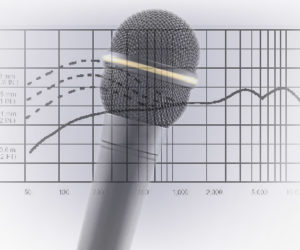The Oxford English Dictionary definition of an engineer – “a person who designs, builds, or maintains engines, machines or structures” – conjures up someone extremely technically minded, with a head full of physics and data. Someone highly schooled in the intricate inner workings of the technology they operate.
Dear readers: I am not that person.
I’m a monitor engineer with more than 20 years of experience. I have a passion for helping musicians find their happy place on stage so they can get on with their job of giving a great performance.
I’m also strong on planning and organization and I have good ears, a cheerful disposition, and an ability – partly innate and partly learned on the job – to deal with different streams of incoming information without getting flustered. That’s all added up to a successful career mixing bands.
Yet while I have a decent understanding of basic physics and what’s going on under the hood, when it comes to software and protocols and the “pi r squared” stuff, the technology has gone beyond me now, and here’s my dirty little secret: I don’t care. It’s all a means to an end for me – I can’t get excited about technology for its own sake. I’ll stay up to date as far as is necessary for me to do my job well, but ultimately it excites me only because of what it allows me to create.

Which is why I welcome the evolution of the live music industry in a direction which has elevated the role of audio technician to a whole new status. “Monitor tech” and “PA/system tech” often used to be a stop on the journey to the position of mix engineer. I spent many (pre-digital) years as a monitor and RF tech, and while I loved the experience, and learning in particular, my eyes were always on the prize of eventually mixing the show.
Those years were invaluable because I learned the nuts and bolts of the job while getting to observe some really fantastic monitor engineers in action, and there’s a definite flavor of several different engineers whose work I admire in my own mixing as a result – a people management skill here, an EQ use there.
But I moved permanently behind the desk at around the same time as digital boards became mainstream and protocol technology came into existence, and the audio world began to revolve around computers rather than standard electronics and copper wire. While everything I learned as a youngster continues to apply – physics and humans have stayed the same – there’s now so much more to learn and understand, and as a result I see a different kind of audio technician working with me these days.
These guys and gals are roadie scientists! Many of them have little interest in mixing but are fascinated by what goes on inside the equipment and are computer savvy to a degree that’s well over my head. This brave new world gives rise to a more nuanced specialization of skills, one where technology actually creates more opportunities for the expression of the full spectrum of the human experience.
Most of us lean slightly more towards either a left-brained, analytical approach or a right-brained, creative direction. Of course, we use both sides of our brains and possess the abilities they offer, but we’re all different and we all vary in our thinking and perception. And while audio engineering is a perfect example of blending the scientific and the artistic, what I’m experiencing in my own touring life is a more pronounced symbiotic relationship between people who have quite different skill sets.
When things get as complex as they are these days, it’s a rare person who truly excels in all areas of the audio arena. But when we put together a team of people who are each as sharp as a tack in their field of expertise, then we can create something really special on a sound crew. Something that echoes what a great band does, each person excelling at their own instrument.
And while it’s wise for each of us to have a basic handle on all areas of the job, because the show must go on – my tech should be able to mix the gig if I drop dead and I should be able to deal with rudimentary networking issues – when we each bring excellence in our particular craft, we can really create beautiful music. And ultimately, isn’t that what it’s all about?




